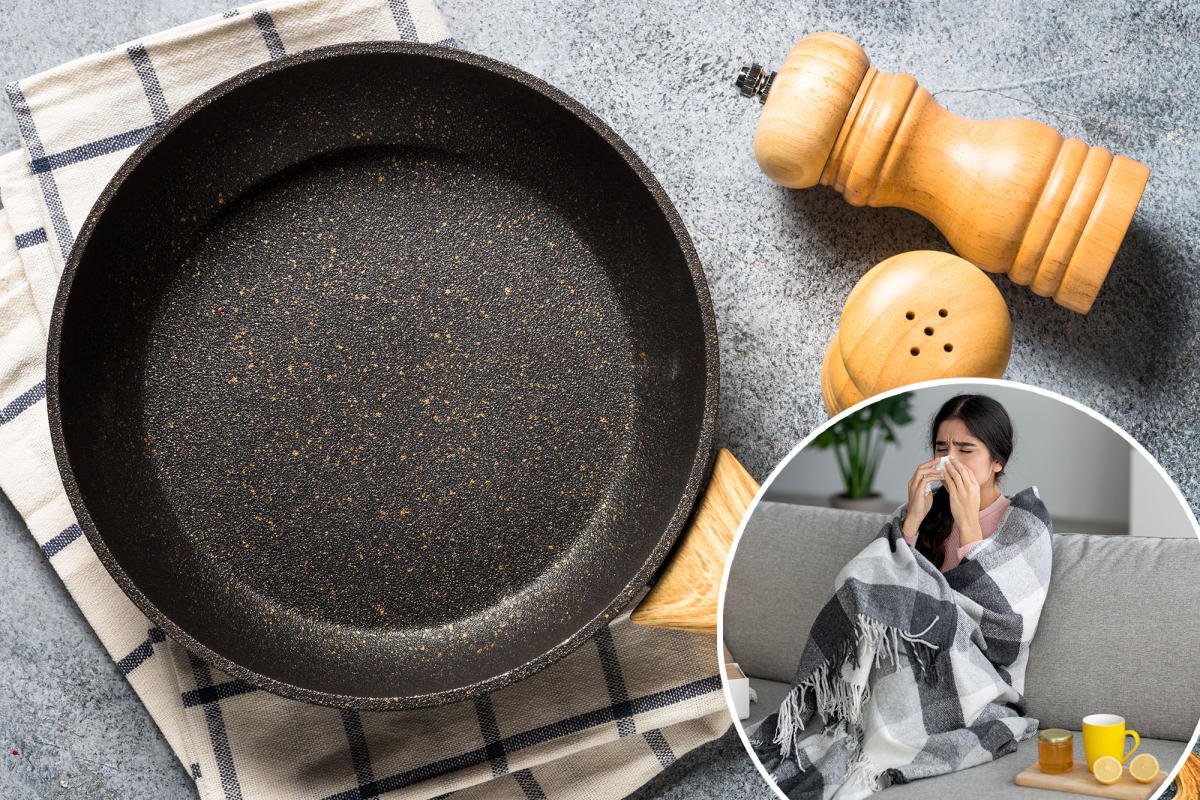Teflon cookware has been a kitchen staple for years, but recent reports show a rise in health concerns linked to these products, specifically a condition known as “Teflon Flu,” or polymer fume fever. This illness occurs when fumes from overheated nonstick cookware, coated with polytetrafluoroethylene (PTFE), are inhaled. These fumes can cause flu-like symptoms such as headaches, chills, fever, and muscle aches.
In 2023, Poison Control Centers in the U.S. reported 267 cases of suspected polymer fume fever, nearly tripling the number from a few years prior. While this figure represents a small fraction of the population, it highlights a growing concern about the safety of nonstick cookware. Experts suggest that the true number of cases may be underreported, as symptoms can easily be mistaken for those of viral infections like influenza.
PTFE is commonly used in nonstick coatings because it prevents food from sticking and makes cleaning easier. However, when nonstick pans are overheated, typically beyond 500 degrees Fahrenheit, the PTFE can break down and release toxic fumes. These fumes not only pose a risk to humans but are particularly dangerous to pets, especially birds, which have fragile respiratory systems.
The symptoms of Teflon Flu usually last one to two days and include a range of discomforts like headaches, shivering, coughing, nausea, and muscle cramps. In severe cases, prolonged exposure can lead to significant respiratory distress.
An NIH report from 2012 detailed a case where a 29-year-old man in Japan experienced severe symptoms after accidentally inhaling fumes from a PTFE-coated pan that had been left on the stove for several hours. The man required hospital treatment, but his symptoms improved significantly within a few days after receiving oxygen therapy.
Preventive Measures: To avoid Teflon Flu, it’s essential to follow safety guidelines when using nonstick cookware. Do not leave an empty pan on high heat, and always use a kitchen exhaust fan while cooking. If possible, avoid using nonstick pans at temperatures higher than 500 degrees Fahrenheit.
Given the rising concern, Poison Control Centers urge anyone who believes they might have been exposed to toxic fumes to seek immediate assistance by calling 1-800-222-1222.
This growing awareness around Teflon Flu underscores the importance of using nonstick cookware responsibly and being informed about the potential health risks associated with it.











